Power
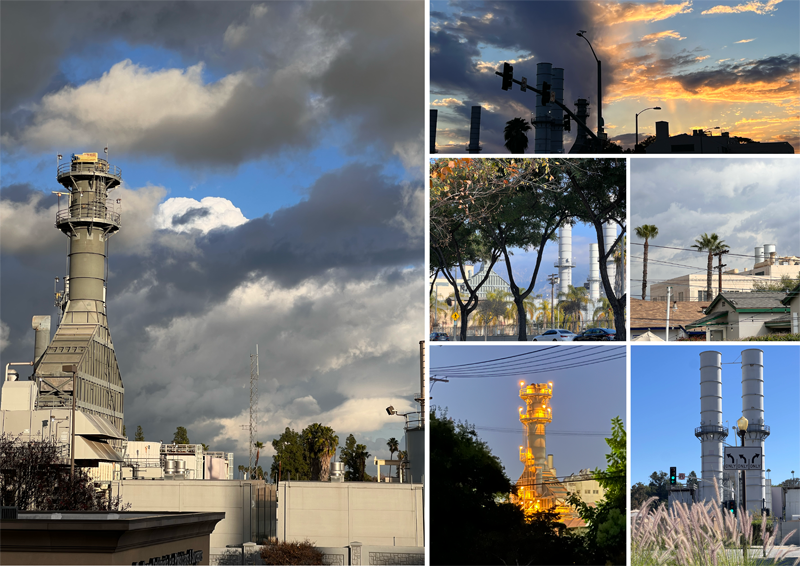
For the last year I have been photographing this landmark in our neighborhood.
Without knowing what it was, exactly, I have been seduced by its beauty; compelled to capture it from every angle, in an instinctive effort to understand it.
Well, thanks to history, it's no longer a mystery:
[In 1906], Pasadena Mayor William Waterhouse, upset with Edison's unsatisfactory service and high price for electricity, refused to pay the bill. Soon afterward the City Board decided to start a municipal lighting system and Pasadena issued a bond to finance street lighting.
A community was powerless against a high-tech monopoly.
Until the community came together and, doing so, was able to produce its own power.
Basically, you can stop reading now.
Just reread the above until it sinks in.

A person who worked in DEI at NBCUniversal, before it was called that, once grabbed my hand and, with a pitying tone, said:
You’ll never be a banker.
That this moment took place at a cocktail party in the home of the person who ran DEI at NBCUniversal, before it was called that, is besides the point.
That another person who also worked in DEI at NBCUniversal, before it was called that, later berated me on the phone because I had the temerity to curse Donald J Trump during an interview with Netflix, thus ruining her chance at scoring a commission for landing me the job, is besides the point.
The point is we are apparently free to state our opinions and live by our credos, preferably chosen, as long as they do not infringe upon the rights of others. (Or hurt their feelings?)
Rights, of course, are not set in stone.
Mostly younger Americans affirmed, publicly, en masse, that Black Lives Matter because the right to a free and fair trial, rather than an extralegal execution (or intimidation, etc), is not enforced equally.
If it were, the statistics would not be so clear.
research shows that Black people are significantly more likely than White people to be stopped (Gelman et al., 2007) and 3.5 times more likely than White people to experience police use of force, even after controlling for their rates of offending and contact with the police
The above is from a 2018 paper, published two years prior to the BLM protests. It is important reading.
Statistics, of course, rely on transparency and thus accountability.
As our previous president once stated:
“When you do testing to that extent, you’re going to find more people, you’re going to find more cases,” Trump said. “So I said to my people, ‘Slow the testing down, please.’ They test and they test.”
In the immediate future, the political alignment between our digital monopolies and oligarchic authoritarians almost certainly guarantees we will have more fettered access to data and thus less accountability.
But we don’t have to point the finger at cabals or cartels to warn our threatened freedom.
We can indict ourselves.
Recently, I had the pleasure of applying for a senior position at a supposedly liberal organization. Midway through a multi-stage interview process, I had a hunch that my liberal use of the public square that was Twitter might scare a person entrusted with safeguarding established power.
So I did a shameful thing: I made my posts private to all but my 660 followers.
This morning, I had the pleasure of making them public again.
It’s not a complicated story: I need a job to be able to feed our children. I chose to self-censor in order to feed my children.
How free of me.
Yesterday, I came across a tweet by a young woman (who runs a “communal space” startup in San Francisco) in which she extols the superiority of Chongqing: she can walk around at 1am, there are happy elderly people in the parks, there are no homeless people.
I have heard similar stories many times before. About Spain under Franco, for starters.
Who really needs free and fair elections, or the freedom of speech, when you have clean streets?
Or, simply, something to eat.
Of course, that calculus changes quickly when you are singled out by a state without restraint; whether for your beliefs – be they rational or spiritual – or, simply, because of misfortune; of being in the wrong place, at the wrong time.
Or in the wrong body; say, the politically weaker sex.
That many or perhaps most of us are willing to abandon our beliefs for economic security may be less an indictment of our moral fibre and more an indication of how precarious our freedoms are in the first place.
It’s not a fluke that the authors of the most liberal and free constitution in world history were primarily well-to-do.
Nor is it a random coincidence that their charter excluded those with the misfortune of having been born with either the wrong amount of melanin (more than a drop) or the lack of a Y chromosome.
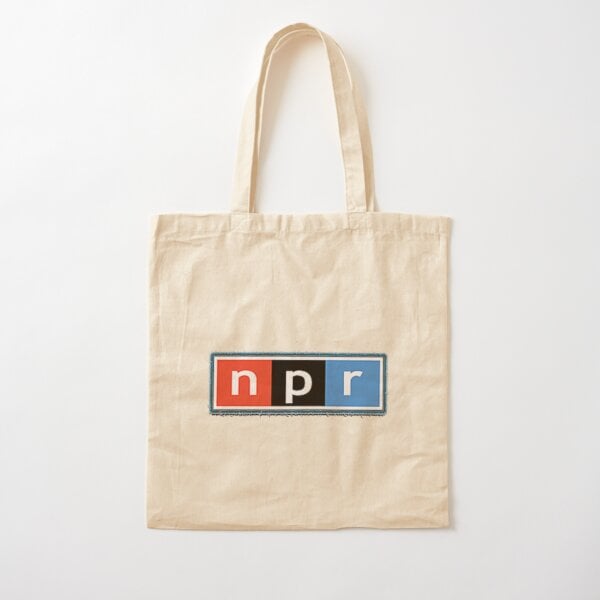
During the quarantine position of the pandemic, I had lunch with a friend who worked in public media.
They said they were worried about our political culture because “both sides” have become too extreme.
It stuck in my craw not because I knew it was incorrect, but because it suggested a breakdown in the liberal coalition.
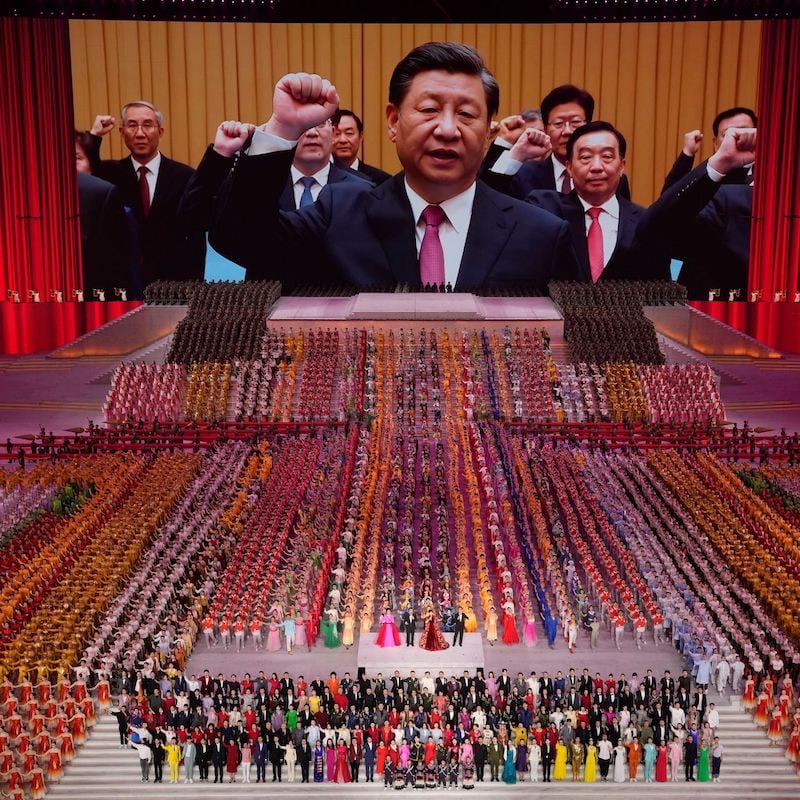
As a refugee from Cuba, I’ve spent my entire life suffering useful idiots on the so-called Left – but look at the literacy rate!
I don’t need a primer on how annoying it is when privileged kids act out their family grievances – or assert their individuality – by crashing political battles.
But I’d much rather a lifetime of middle class blowhards telling me how much better off the Cubans are today than having my hand grabbed by an executive of the company I work who then shames me for my disloyalty to the ruling class.
It matters, you see, who has power. The devil is in that detail.
Earlier this week an Old White Man at NPR, upset at seeing his young not-white coworkers rise through the ranks, grabbed the mic to embarrass himself. (My own take is closest to this.)
This man had the audacity to proclaim “both sides” knowing full well he would be embraced by established power.
But in the reality based community, there are not two sides.
Donald Trump is a traitor, a con man and a degenerate.
That he enjoys the support of many is neither novel nor significant. The story of humanity is primarily a contest between those with power and those with material needs – to say nothing of those motivated by greed.
Tyrants are often popular. That doesn’t make them legitimate.
That my saying any of this is controversial is a sobering indictment of how precarious our freedoms are, and will continue to be, until economic security is as protected as our right to bear arms.
As for my bare arms:
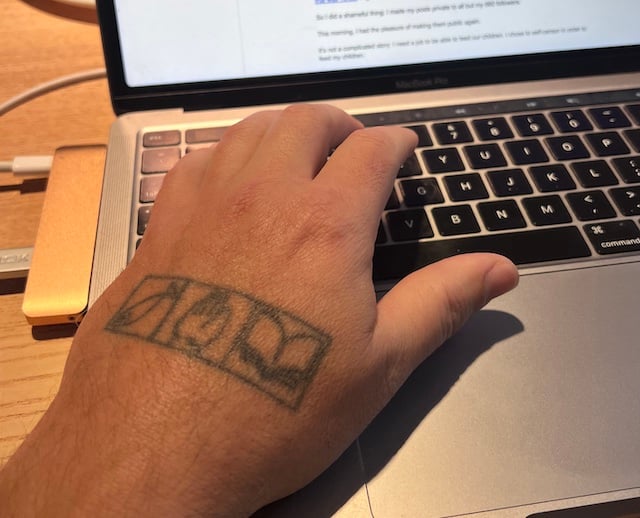
The fish represents food: our most basic need.
Without economic security, there can be no freedom, as the story of my native country so tragically proves.
You can easily find examples of hunger being used as a weapon as well as catastrophes that could have been averted had the wealthy ceded just a smidge of their fortune.
The hand represents peace.
Those who prefer violence to votes – who call rioters patriots, or terrorists freedom fighters – have lost the plot.
Unless they are plotting against democracy, as so many are and have.
Sadly, I am often reminded of Fidel Castro's "letter from a jail", nowhere in the same moral universe as MLK Jr's, wherein he contends that "history will absolve him."
That's a coward's move. Always has been.
The book represents culture: the truth alone guarantees justice.
If you've been raised in the relative lap of luxury which has been late 20th America, you will likely be tempted to focus on this last directive; often at the expense of the others.
My credo is not one, but all three, and in that order.
Perhaps, the professional entrusted with promoting diversity at my previous employer was right, and my tattoo makes me unhirable; so willing am I to bite the hand that feeds lest I become a domesticated animal.
But, more likely, I should have just gone into dentistry.
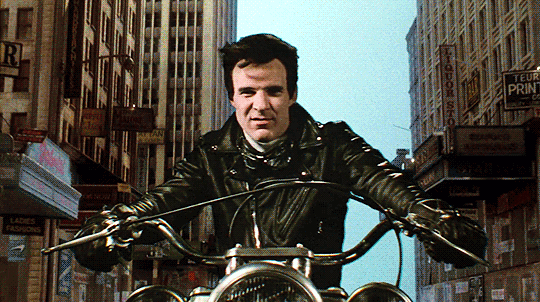
p.s.
It is not incidental that on Elon Musk’s X, you can pay to hide your likes.
p.p.s.
Like most of you, I love Curb Your Enthusiasm. Surely, one of the great works of capitalism, right?